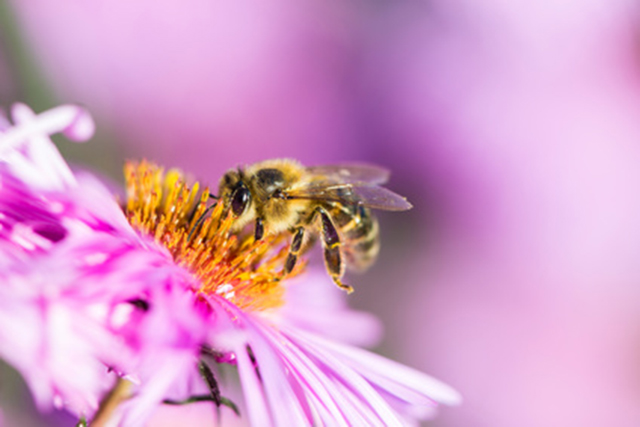According to Beyond Pesticides, “Neonicotinoids are a relatively new class of insecticides that share a common mode of action that affect the central nervous system of insects, resulting in paralysis and death.”
Recently, these pesticides are being suspected as a major cause for the widespread collapses of bee colonies. The concern has grown so much that The European Commission decided to ban neonicotinoids.
Eating nectar containing these pesticides makes bees slow and disoriented, and it can make it difficult for them to find their nests.
Now, new research is emerging showing why neonicotinoids are so dangerous to bees. Two new studies, both published by the journal Nature, show that these common pesticides attract bees and kill them.
In the first study, the research team offered bees a solution of pure sugar and a solution containing neonicotinoids. They found that the bees did not avoid the pesticides. In fact, the bees preferred, and were more attracted to the solution containing neonicotinoids. The researchers also found that the sensory neurons that bees use to identify poisons did not respond to neonicotinoids.
The second study did not look at research colonies like the previously mentioned study. Instead, they examined actual wild bee colonies. The researchers found that fields containing the pesticides hosted fewer bees, and that bees living in these fields were much less likely to create nests and reproduce.
“The European Union has already instituted a moratorium on three of the most common neonicotinoids,” says Jennifer Sass, a senior scientist in the National Resources Defense Council (NRDC) health program. “These studies demonstrate why the White House task force reviewing the issue should move quickly to tighten U.S. regulations.”
Note: None of the information in our website is intended to diagnose, treat, cure or prevent any illness or disease. The content on our website is for educational purposes only.
DON’T FORGET to sign up for our weekly newsletter to get our latest articles, updates, free recipes and giveaways.
Bee-friendly gardens may be killing our treasured bees.
WHO labels Monsanto’s glyphosate as possible carcinogen.
Roundup herbicide triggers antibiotic resistance.
New study shows that bee venom may kill HIV.
For a DIY natural bee repellent.
REFERENCES:
1. “Popular Pesticide Draws Bees to Poisoned Crops, Then Kills Them, Says a New Study.” OnEarth. Natural Resources Defense Council, 22 Apr. 2015. Web. 09 May 2015.
2. “Bees Prefer Foods Containing Neonicotinoid Pesticides.” Nature.com. Nature, 22 Apr. 2015. Web. 9 May 2015.
3. “Seed Coating with a Neonicotinoid Insecticide Negatively Affects Wild Bees.” Nature.com. Nature, 22 Apr. 2015. Web. 9 May 2015.
4. “Presidential Memorandum — Creating a Federal Strategy to Promote the Health of Honey Bees and Other Pollinators.” The White House. The White House, 20 June 2014. Web. 09 May 2015.
5. “Issues: BEE Protective: Pollinators and Pesticides: Chemicals Implicated.” Beyond Pesticides. Beyond Pesticides, n.d. Web. 09 May 2015.
6. “Neonicotinoid Pesticides Are a Huge Risk – so Ban Is Welcome, Says EEA.” European Environment Agency (EEA). European Environment Agency (EEA), 2 May 2013. Web. 09 May 2015.
7. “Bees & Pesticides: Commission Goes Ahead with Plan to Better Protect Bees.” European Commission. European Commission, n.d. Web. 09 May 2015.

















